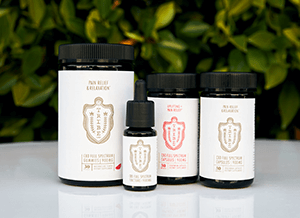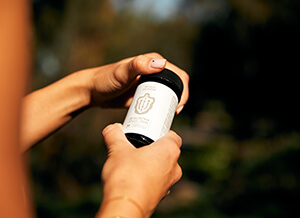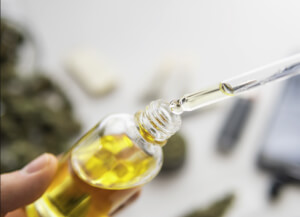There’s a lot of speculation surrounding marijuana’s therapeutic potential, but glaucoma often appears on lists of “approved conditions” in states with medical cannabis laws. However, most of the research into cannabis for eye issues has focused on the psychoactive cannabinoid delta-9 THC. Doctors still don’t know how non-psychoactive cannabinoids like CBD alter our eye health.
While we need more tests to understand how CBD influences vision, a few preliminary trials suggest glaucoma patients should proceed with caution. Anyone who has concerns about intraocular pressure (IOP) should review the latest findings on CBD for glaucoma.
Does Hemp Help Or Hinder Glaucoma Symptoms? — A Review Of The Latest Data
The UK’s University of Aberdeen recently released a report examining CBD and delta-9 THC on glaucoma patients. Although this study was small, it gives ophthalmologists an early look into how these popular cannabinoids may affect glaucoma.
Researchers gave each patient one of four sublingual cannabis tinctures:
- 5 mg of delta-9 THC
- 20 mg of CBD
- 40 mg of CBD
- A placebo oil
A few hours later, eye doctors examined the IOP scores for each patient. Of these four groups, only those who took delta-9 THC had a significantly lower score versus the placebo. However, researchers noted that this drop in IOP didn’t last longer than four hours.
As for the CBD groups, study authors didn’t find any evidence that this cannabinoid reduced IOP rates. In fact, scientists cautioned that the 40 mg dose of CBD slightly increased IOP after four hours.
The University of Indiana also examined how CBD and delta-9 THC altered the eye health of rats. About four hours after they put CBD eye drops in a rat sample, scientists discovered the average IOP scores went up by about 18 percent. By contrast, delta-9 THC appeared to significantly lower IOP for at least eight hours after administration.
These high-profile tests strongly suggest that delta-9 THC is the compound with the most potential for glaucoma patients. While there’s no evidence that small doses of CBD are “bad” for glaucoma patients, there’s also no data CBD has a positive effect on this condition. Patients with IOP-related issues should speak with their doctor before experimenting with cannabis-containing supplements.
So, Should Glaucoma Patients Give Up On CBD Oil?
Although early tests suggest CBD isn’t the best supplement for eye health, it’s essential to remember we’re only in the early days of hemp research. Scientists may soon discover ways patients could use CBD oil without putting extra stress on their eyes.
For instance, as the University of Aberdeen study found, low doses of CBD didn’t appear to positively or negatively affect patients. Therefore, it may be possible for eye patients to microdose CBD without adverse reactions.
Also, CBD topicals can’t enter the bloodstream like CBD edibles or sublingual oils. Since skin-safe CBD creams only have a localized effect on joints or muscles, they may be the better choice for patients afraid of eye-related symptoms.
Lastly, many glaucoma patients are turning to alternative hemp cannabinoids like CBG for relief. Currently, there’s less data on CBG’s effects, but preliminary tests suggest it doesn’t raise IOP as CBD does. If these findings are confirmed, Tribe’s CBG capsules may be a better alternative for glaucoma patients.
Please Speak With Your Eye Doctor Before Testing Tribe CBD!
Although Tribe CBD is a huge fan of hemp’s healing benefits, we recognize that no supplement is a “panacea.” Even high-quality herbs like ashwagandha, Valerian root, or ginseng aren’t the optimal choice for every patient. In the case of CBD, there’s enough evidence that suggests people with glaucoma should be extra cautious around this cannabinoid.
We recommend that patients with IOP-related conditions speak with their eye specialist before experimenting with Tribe CBD oil. Your doctor should have expert guidance on incorporating this cannabinoid into your treatment program. Also, please don’t forget that Tribe’s CBD Cool Therapy Cream doesn’t pass the blood-brain barrier, so it can offer relief without altering IOP.




